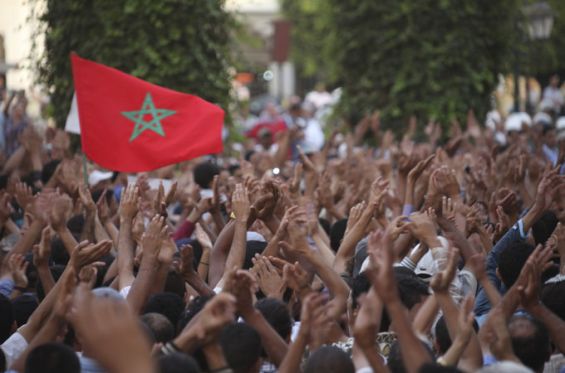For the fourth time in a row, Morocco tops the Arab Democracy Index 5 that measures the democratic transition process of 10 Arab countries. According to the regional ranking, published on the 15th of June 2017, the kingdom maintained a leading position with a score of 735 points out of 1000. Tunisia on the other hand was ranked second, making by that progress compared to the previous years. The list then features, Jordan (3rd) followed by Kuwait (4th), Algeria (5th), Palestine (6th), Lebanon (7th), Egypt (8th), Bahrain (9th) and finally Saudi Arabia (10th).
According to the ADI 5 2017 survey, the report scored 571 points out 1000 which is considered to be lower than what was achieved in 2012. The Global ranking dropped 10 points out of the scale moving to an era where respecting human rights, freedoms, equality and social justice decreased gradually.
However, for countries like Morocco and Tunisia things are beyond average as pointed out by the report. «Morocco continued to lead for the fourth time, followed by Tunisia» which is «witnessing the greatest progress», the same source adds. Egypt, on the other hand, has witnessed the greatest decline.
The decline
Conducted by the Arab Initiative and Palestinian Center for Policy with the help of 10 research centers in the Arab World, the regional survey aims at showcasing the progress made by these countries in terms of democracy. Entitled «A Marked Decline in Freedoms and Reform», it suggests that there are huge shortcomings in the process of democratic change in the Arab world enabling to transform the region.
«The overall decline in the Index was largely expected because of the shrinking or closure of the space for freedoms that opened to the Arab communities in 2011. And now it is becoming clearer that the optimism of a breakthrough in the process of democratization that accompanied the Arab Spring revolutions was not realistic», announced Bassma Kodmani, Executive Director of the Arab Reform Initiative.
The report, through several indices has came to the conclusion that there is «a decline in the means (legislation) indicator and a rise in the practices (elections) indicator», adding that «the analysis of the digital results indicates that the process of democratization seems to be either driven from outside or designed to satisfy the population through formal processes».
Recommendations to maintain progress
For that sake, authors of the GDI 5 have put forward a number of recommendations to overcome the crisis and encourage reform in the region. «Strengthen oversight functions in Arab political systems, enhance the ability of parliaments to ensure accountability, increase respect for judicial independence, and impose oversight on the performance of the security services», the same source insists.
The team who worked on the preparation of the GDI 5 must «strengthen the role of women in the labour force, and make fundamental change in the priorities of government spending». It also insists on «allocating larger budgets, combating illiteracy, and reducing school dropouts alongside increasing freedom of the media in order to boost social debate and increase citizen awareness».





 chargement...
chargement...













